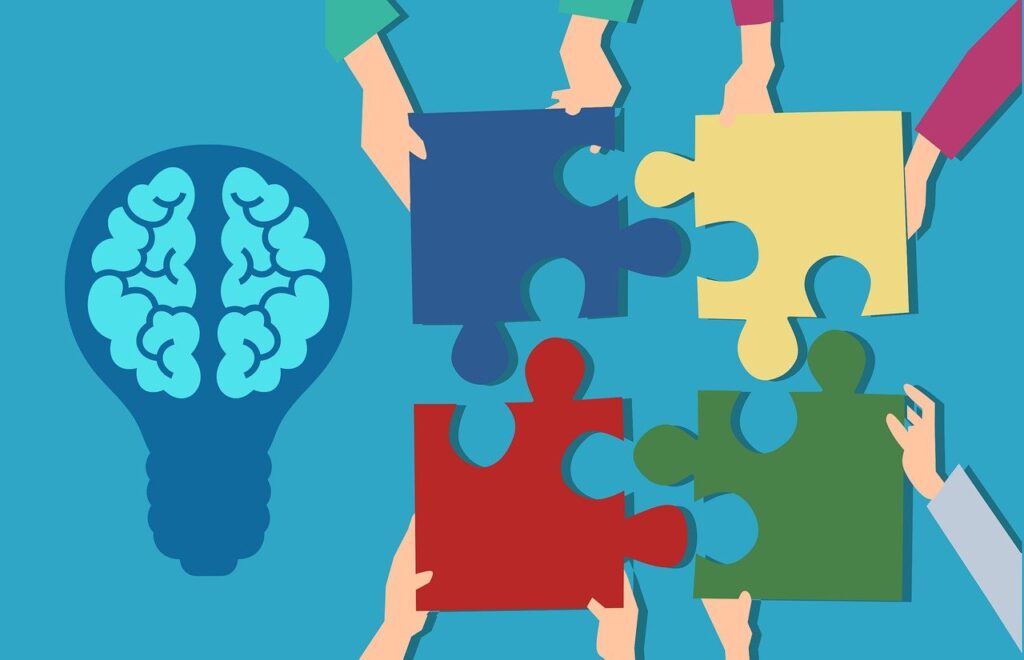Avoiding The Empty Brain Feel: Managing Content Anxiety on the MCAT
- by

As a pre-med, you’ve taken an exam or two (though it probably feels like 200!). When test time came, you may well have experienced testing anxiety. Sweaty palms, nausea, heart palpitations, racing thoughts, going “blank”, hyperfixation, and catastrophic thinking are just a few of the symptoms of an anxious test taker. For an exam like the MCAT, which is both high stakes and highly challenging, your test anxiety may feel insurmountable. It’s so much content to know, recall, and apply to test questions you’re seeing for the first time.
Today, we’re going to focus on one specific manifestation of testing anxiety–trouble with recall–and some techniques you can start applying today to ensure you’ll have all the tools you need to beat that “mind went blank” feeling!
Tip #1: Face the Music
Do you tend to listen to music when you study? Soft, faster-paced music1 that doesn’t have lyrics2 may directly help you to be more effective in your studies and practice – but the hypothetical benefits don’t stop there! While the Mozart effect may be pop science3, there’s still some science to back context-dependent memory4 and recall cues. Essentially, listening to the same music while studying and performing a task has been shown in some populations to aid recall and lessen forgetting of learned information.
How can you apply this to your studies? Well, if you’re struggling with a specific set of concepts, consider consistently studying that material while listening to the same (soft, relatively fast-paced, lyric-free) music. Make this a habit. Every time you have that content under the microscope, be sure you’re listening to the same tune. Then try this tip on a practice test: if you see a passage or question that covers the information and you’re struggling to remember what to do, remember the music and “listen” to a bit in your head as you try to recall the content. If this is a method that helps you, lean in and use it in your prep for your most challenging topic areas. You’ll have a ready-made context-dependent recall tool!
But what if music isn’t your thing? Other elements can also help! Eat the same snack before studying for a given section and have that be your snack during your break before that section starts. Smells, mental state and mood, and other contextual details that you effortfully bring with you on test day can all help you get back into the groove you had when you were studying at home in PJs.
Tip #2: Memory is a Palace
If you’ve never watched BBC’s Sherlock, this may be your first exposure to the idea of a “memory palace.” The tl;dr version: you can enhance your memory, particularly of information that belongs in a specific order (looking at you, metabolism), by associating those concepts with spatial memory. In its simplest form, you might imagine yourself placing pieces of information as objects around a room in your head, then going through the room and looking at those objects to remember that information. The memory palace technique is an application of the method of loci, which has been demonstrated to be effective in improving memory for a variety of learners, including adults learning scientific topics5, 6
If you want to start using the method of loci to study, when you feel that blank brain coming on in practice tests or on the real exam, you’ll be able to take a step out of the testing room and into your brain, walking through the locations you’ve created to facilitate recall. Step back out into the real world after remembering what you need, and you’ll be ready to nail those content questions. Our friends at Sketchy have built entire worlds for you to travel through, and they recently wrote up a deeper dive on these mnemonic tools if you’d like to explore further how they can enhance your MCAT studies. You can also double up and increase retention while improving recall as you prep with Blueprint AND Sketchy together!
Sign up to get expert tips and exclusive invites to free MCAT classes and medical school admissions workshops!
Tip #3: Take a Break
When you’ve got a blank brain, you may instinctively stress out and try to recall as much as you can. It may feel counterintuitive, but you should actually do the opposite7: close your eyes, take a deep breath, and count slowly down from 5. As you already know, regular breaks are an important part of studying and testing. Mini-breaks during an exam, in which you are NOT trying to recall something, but instead are allowing yourself to focus solely on counting and breathing, can help you to refocus. You may even want to proactively work these into your practice test routine as a way to boost your performance, especially on those test sections later in the day!
Having your mind go blank is just one of the many symptoms of testing anxiety that you may face. Fortunately, there are just as many ways to manage that anxiety. If you want to learn a few more general tips, check out our article here.
- 1. Thompson, W. F., Schellenberg, E. G., and Letnic, A. K. (2011). Fast and loud background music disrupts reading comprehension. Psychol. Music 40, 700–708. doi: 10.1177/0305735611400173
- 2. Perham, N., and Currie, H. (2014). Does listening to preferred music improve reading comprehension performance? Appl. Cogn. Psychol. 28, 279–284. doi: 10.1002/acp.2994
- 3. Waterhouse, L. (2006). Multiple intelligences, the Mozart effect, and emotional intelligence: A critical review. Educational Psychologist, 41(4), 207-225.
- 4. Smith, S. M. (1985). Background Music and Context-Dependent Memory. The American Journal of Psychology, 98(4), 591–603. https://doi.org/10.2307/1422512
- 5. Wilding J, Valentine E. Superior Memory. Hove, UK: Psychology, 1997.
- 6. Qureshi, A., Rizvi, F., Syed, A., Shahid, A., & Manzoor, H. (2014). The method of loci as a mnemonic device to facilitate learning in endocrinology leads to improvement in student performance as measured by assessments. Advances in physiology education, 38(2), 140–144. https://doi.org/10.1152/advan.00092.2013
- 7. Atsunori Ariga, Alejandro Lleras. Brief and rare mental ‘breaks’ keep you focused: Deactivation and reactivation of task goals preempt vigilance decrements. Cognition, 2011; DOI: 10.1016/j.cognition.2010.12.007
Search the Blog

Free Consultation
Interested in our Online MCAT Course, One-on-One MCAT Tutoring or Med admissions packages? Set up a free consultation with one of our experienced Senior Student Advisors.
Schedule NowPopular Posts
-
MCAT Blog What's on the MCAT?
-
MCAT Blog How to Review MCAT Full Lengths

Free MCAT Practice Account
Need great MCAT practice?Get the most representative MCAT practice possible when you sign up for our free MCAT Account, which includes a half-length diagnostic exam and one of our full-length MCAT practice exams.
Learn More







